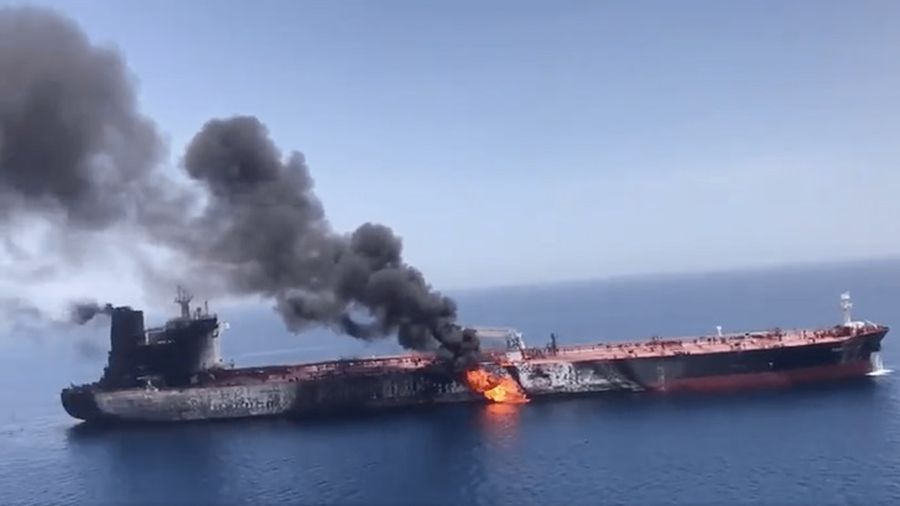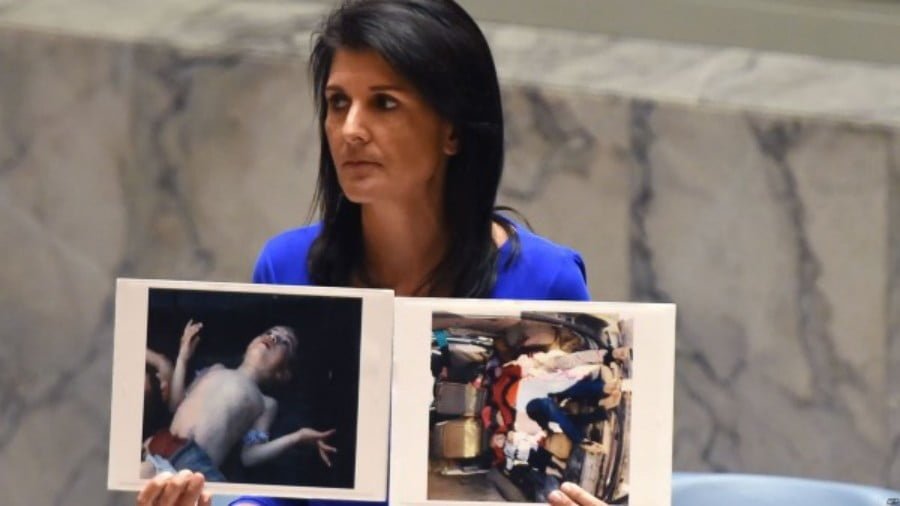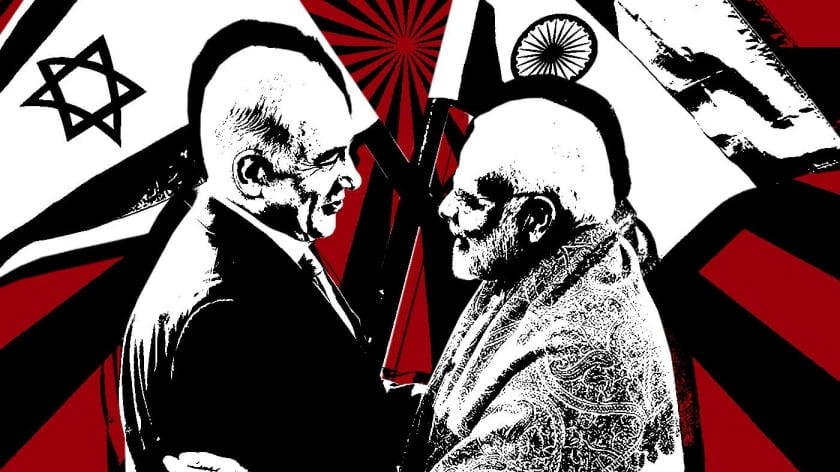Tensions Rise in the Gulf of Oman
Recent events in Lebanon, the border clashes with Israel and exchange of rockets, should come as no surprise to regional observers, especially in the larger shadow of Israeli-Iranian rhetoric. It is no coincidence that the attack on an Israeli-managed oil tanker in the Gulf in recent weeks, in which two crew members, a Briton and a Romanian, were killed, is being blamed on Iran. Nobody is mentioning that not only has Tehran denied any involvement but it would be counterproductive to its national interests for it to be involved, either directly or by proxy.
So why now, and why are these concurrent events happening – what is the real motivation? The intersecting flows of events are beyond the usual rhetoric of war and geopolitical sabre rattling and positioning. As always, Hezbollah is implicated as the main culprit—and behind it stands Iran, with Israel being good and Iran being bad, much like the cartoon series White Spy vs. Black Spy!
Iran-Hezbollah and Israel are going at it like two roosters trying to prove who controls the chicken coop. Israeli Defence Minister Benny Gantz claims that his country is ready to take action against Iran, calling it “a global and regional problem” and citing proffered “hard evidence” that Iran was behind the attack on the tanker, without offering anything which would classify as evidence.
Gospel or Gossip!
Some readers may recall a new 2021 TV series from Israel, bilingual and at times in English-Hebrew, about deception among Tel Aviv Intel agencies and various rogue branches of the CIA in Manhattan and DC. A beautiful, young, NYC blonde Jewess is married to a grumpy, middle-aged, not attractive former Israeli commando trainer down in Mexico. He is now a Tel Aviv tour guide, and all is not going well for our protagonist!
Much of what is now going on can be compared with a scripted soap opera by underappreciated and underpaid writers, with many twists and turns. One thing is certain: there is no need to jump to any solid conclusion or accept the newspeak as gospel, especially the first few articles which appear on an internet search – but rather to consider them as gossip at best.
Always consider the source is a good rule of thumb to follow, as are how something is quoted, and the previous track record of a given publication, such as Business Insider, or a news agency. For instance, when the US shared photo evidence on Friday, the claim was made that it “showed Iran built the “kamikaze” drone used in a deadly attack on the Israeli-linked tanker off the coast of Oman on July 30, an attack that has raised tensions in the region.”
But the source of this is not neutral. In reality an expert explosive investigative team from the US Navy aircraft carrier USS Ronald Reagan analysed recovered pieces of the unmanned aerial vehicle (UAV), or drone, used in the fatal attack on the tanker, and concluded that they were “nearly” identical to previous examples from Iranian one-way attack UAVs, according to US Central Command (CENTCOM).
There are only so many designs of drone, and so many ways they can be constructed to work effectively. Being nearly identical to an Iranian attack drone merely prove Iran has the same supplier as other nations, unless the US can prove that a given aircraft manufacturer lives off Iranian orders alone.
There are many competing interests at stake here, and political careers – for instance, that of the former US Secretary of State and CIA director, Micheal Pompeo, who has done his best to dismantle the US-Iran nuclear deal – even according to the Atlantic Council. He is no exception to the general policy, whose objective remains the same, even under the Biden administration: to goad Iran into taking further steps which can be condemned as provocative and contribute to snapback UN sanctions.
Also, as with the previous government, Iran has a new leadership of hardliners who believe they can beat the sanctions through smuggling to make enough revenue and then blame the US for the poor economy the rest of the population suffers. So it looks like there are elements which want to sabotage negotiations on returning to the nuclear deal. There is no telling how far along they are in this – maybe further than anyone in the West knows.
Meanwhile, an array of vested interests are benefiting from all the turmoil and political positioning. I know for a fact that Armenia, Turkey, Azerbaijan, and Georgia, especially TBC Bank, one of the largest Georgian banks, have been most helpful in helping Iran circumvent the sanctions.
Business as Usual
Despite efforts by Israel and the US to arm part of the Iranian population for a possible takeover, life continues, nothing really changes, other than hardships for most. OPEC Secretary-General Mohammad Sanusi Barkindo recently attended the inauguration of the new Iranian President, Ebrahim Raisi, in Tehran, underscoring what the effect of US sanctions has actually been.
The price of oil, which is high, due in part to US efforts in a price war and going green, has been a windfall for the very regime that the US so loathes. The very efforts taken to weaken the regime are having the opposite effect, and making friends who once kept a safe distance all the more “closer and cosier” in their dealings, including those in military hardware and commercial deals both overt and covert.
All the while there are no signs of lightening sanctions, and the rhetoric is picking up speed. It defies reason why friends and allies would pick right now to increase the pressure on Iran, and the purported drone attack may prove a false flag.
All this “coincides” with the installation of an ultraconservative new president. Instead of trying to find a common language, the threats and subterfuge further “muddy the waters” over any prospects for talks with world powers over reviving the frayed 2015 nuclear deal Israel opposes. Now it may be dead in the water, at least as far as Iran is concerned.
Maximum pressure on Iran has not worked, and will not work, and we know that from the previous administration. As Barbara Slavin, the director of the Future of Iran Initiative at the Atlantic Council wrote during the Trump administration that “it does not take a Ph.D. in international relations to understand the consequences of such “malign” behavior: when the US makes demands in the future, fewer nations will follow.”
So when speaking of elements which want to sabotage negotiations on returning to the nuclear deal, it is becoming all the more clear that these elements are not only within Iran but just as prevalent outside, in the various governments which claim they want to get back on track with an Iranian nuclear deal.
Nexus to recent news!
Iranian-related news is more like a bellwether of political initiatives and failures, not only in terms of Iran but regional policy as a whole. For instance, the headline “Israel’s defense minister threatens Iran with a military strike after a deadly drone attack” has a double meaning. It is just as much an indictment of failed domestic policies as a legitimate threat—and not only in Israel proper but the whole region, and this includes the best friend status of Israel and the US-UK; all are in cahoots when it comes to sabre-rattling.
Unfortunately, Israel’s efforts to make it hard for Iran to continue with its nuclear programme is making it all the more likely that it will not be deterred – and makes the work of Secretary of State Blinken all the more difficult.
It is still difficult, talking with all earnestness, to believe in the professed American desire to cut a new nuclear deal in the nearest future. Few international and regional players really want one, as too much stability in the region would bring issues held in abeyance for years back to the forefront, (such as the legal status of the Golan Heights). Hence Israel needs to be a bit more pragmatic, as it is not gaining any brownie points with close friends and strategic allies, and many things are at stake, not just the country’s own vested interests.
It is clear that Israel needs to limit its actions on the Iranian front, not for its own good but for the sake of its strategic ally, the United States. If Israel opts to continue to act independently against the threat from Iran it will not bring a geopolitical dividend for the US and its NATO partner countries, not only in the region but on an international level.
The lack of any consistency in US foreign policy has made an already complicated region all the more so. US-Israeli policies are making Iran appear more as the aggrieved partner in an already bad marriage.
It is not difficult to see who benefits most from the current recriminations, and closer ties between Iran, Russia and China, and even the European Union as an economic union (not political) demonstrate that US policy towards Iran is not good for business. When joined up with efforts to meddle in business dealings with Russia, US policy appears shortsighted and not win-win — more a zero-sum game.
Let us not leave Turkey and Syria, even Saudi Arabia, out of the regional matrix ,as they have created their own set of problems, and not totally on their own. Turkey seems to be the regional winner, albeit with complications, and now provides a crossroads for competing interests and the place where ‘business as usual’ is open as always.
Iran is stronger in some ways from sanctions, and they have given it a free reign to continue with many unpopular policies at home. For the West to slacken up, chill a bit over sanctions and control Israel and its veiled and unveiled threats would provide a greater regional dividend, and allow the US to back off and develop a proactive foreign policy which could potentially defuse Israel’s poster of a bomb with a short fuse depicting Iran’s nuclear programme.
There are also unexploded landmines in the region, especially Lebanon, and it is no coincidence that these are being looked at carefully to future complicate an already complicated situation. Lebanon and Israel will not save themselves by pointing a finger at their neighbours or traditional partners, but rather by mobilising them to act collectively.







